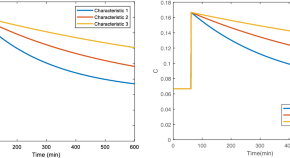
Collection
Approaches for assessing parameter identifiability in mathematical biology
- Submission status
- Open
- Open for submission from
- 01 December 2023
- Submission deadline
- 01 December 2024
Editors
-
Matthew Simpson
Matthew (Mat) Simpson is professor of applied mathematics at Queensland university of Technology, Australia. Mat’s research focuses on projects at the interface of mathematical modelling, uncertainty quantification, parameter estimation and identifiability analysis. His research often involves developing and deploying mathematical, computational and statistical tools to understand various biological and biophysical applications, including tissue growth on 3D-printed scaffolds, in vitro observations of cell migration and proliferation, as well as tumour spheroid and organoid experiments.
-
Ruth Baker
Ruth Baker is a Professor of Applied Mathematics at the Mathematical Institute, University of Oxford. Professor Baker’s research focus is on developing and applying novel mathematical, computational and statistical methodologies and modelling frameworks for investigating developmental biology systems at the cell and tissue level.
-
Oliver Maclaren
Oliver Maclaren is a lecturer in the Department of Engineering Science and Biomedical engineering at the University of Auckland, New Zealand. Oliver’s research focuses on using and developing mathematical, computational and statistical methods to help understand biological and engineering systems across multiple scales.




